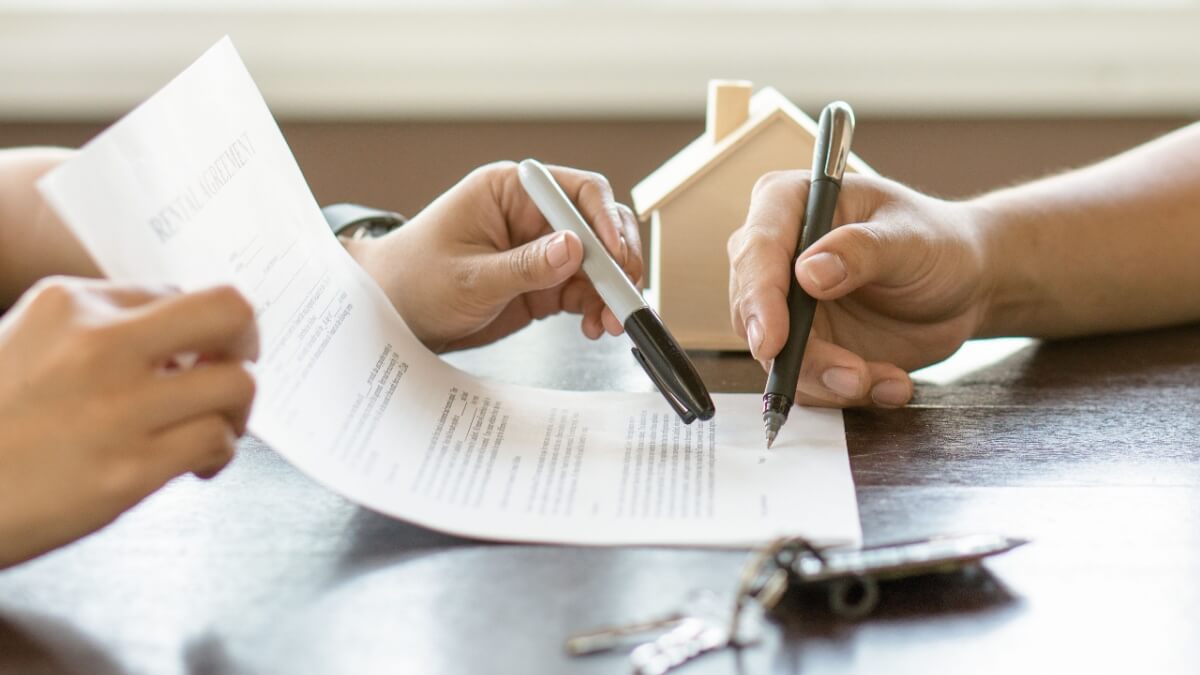What is the 'Nota Simple' in Spain and how do you get one?
Everything you need to know about the Nota Simple in Spain - an essential document for buying property - including how you can get it and how much it costs.

If you own property overseas and are thinking of selling, you’ll need to make sure you’re fully prepared. This means understanding local laws and tax obligations, as well as figuring out the practicalities of transferring the funds back to the UK.
In this essential guide, we’ll be focusing on selling property in India and bringing money back to the UK.
We’ll run through info on India’s rules for foreigners buying and selling real estate, and how to manage currency exchange between Indian rupees (INR) and British pounds (GBP).
We’ll also cover transfer methods, such as using a Wise account as a way to securely, quickly and cost-effectively send large sums between countries. It’s not a bank account but offers some similar features, and your money is safeguarded.
Get expert support for your large transfer 📞
Before you put your Indian property on the market, there are few crucial things you need to consider - and perhaps do further research into.
In India, the rules and regulations for real estate transactions are governed by the Reserve Bank of India (RBI). These can be quite complex - and especially so for foreigners - so it’s important to do your research before buying or selling property in the country.
Here are the key things you need to know:¹
The rules are different for non-resident Indians (NRIs) and people of Indian origin (PIO). There are also restrictions on nationals of certain countries, such as Pakistan, Bangladesh, China and Hong Kong.¹
To make sure you adhere to the letter of the law when selling a property, it’s strongly recommended to seek professional advice.
You’ll be setting the price for your property in the local currency - Indian rupees (INR). But how much you’ll actually receive when converting it to GBP will all depend on exchange rates on the day of completion.
If there’s a delay and the completion date is pushed back days or even weeks, the rate is likely to be different. This could work in your favour, but it can also mean that you receive less for the sale than you expected.
There are some ways you can mitigate the risk of exchange rate fluctuations, such as with forward contracts. These let you ‘lock in’ an exchange rate for a set period, so you can manage the transactions related to your property sale without being impacted by changes in rates.
Property sales - and particularly those taking place abroad - can be fraught with hidden costs. There are often fees and charges you hadn’t planned for, and these will all come out of the final amount you receive.
This is why it’s crucial to do as much research as possible before putting your property up for sale. In India, you’ll need to look out for costs such as:²
It isn’t just Indian taxes you may be liable for when you sell a property abroad. If you’re a UK resident and you sell property overseas, you may also have to pay Capital Gains Tax (CGT) on any profits you make on the purchase.
We’ll look at this in more detail next.
If you’re a UK tax resident at the time you sell your property in India, you may be liable for Capital Gains Tax (CGT) in the UK.³
This is a tax on the profits of disposing of (selling) assets. It’s usually worked out by calculating the difference between what you paid for the property and what you sold it for. So if it’s appreciated in value over the years, or your renovation work has boosted its sale price, you can expect to make a profit and be taxed on it.
The rate depends if you’re a basic rate or higher rate income taxpayer. CGT for residential property sales is:⁴
It's important to note that this rate is only applied to the profit from the sale, not the total amount you receive from the buyer. That said, it can still be a hefty bill to pay.
There are different rules if you live in India and are a tax resident there.
There’s also the issue of double taxation. This is where you’re taxed in two jurisdictions, in this case India (the country where you’re selling a property) and the UK (where you live). The UK and India have a Double Taxation Avoidance Agreement (DTAA) in place, which means that you may be able to apply for tax relief to resolve this issue.
Tax can be really complicated, especially when it involves transactions in more than one country. It’s strongly recommended to get professional tax advice before selling your property, so you’ll know exactly what the tax implications will be (and can budget for it accordingly).
Now, let’s turn to more practical matters - how will you actually get the funds from your India property sale back to the UK?
There are a couple of ways to set up an international transfer for a large sum. You can use banks, or you can use an online international money transfer specialist.
To sell a property in India, the country’s income tax regulations may require you to set up a local bank account in the country. This will enable you to receive and withdraw the proceeds of the sale in accordance with the law.⁵ It’s recommended to seek advice on what is required.
With the funds from the sale safely in your bank account in India, you can then set up a transfer to your UK bank account. It’s safe and secure, although it may not be the quickest. There may also be verification steps and checks involved, as you’re sending such a large amount.
But the main drawback to this option is the cost. You’re likely to pay high transfer fees, with potential additional costs from the corresponding/receiving banks involved in SWIFT payments.
You’ll also be at the mercy of whatever exchange rate the banks use to convert currency, which could include a mark-up or margin. This could mean a substantial loss considering the size of the sum being converted.
The other option is to use an international money transfer specialist company like Wise. This gives you more control of exchange rates, as well as more transparency on fees, and your money is safeguarded.
If you’re legally required to have an Indian bank account, you can use this to receive the proceeds of the sale. Then, you can make a transfer in Indian rupees (INR) to your Wise account back in the UK. You may still have to pay some fees for making an international transfer, but you can save on currency conversion.
The Wise account lets you hold and convert between 40+ currencies all in one place, including Indian rupees. This means you can convert INR to GBP whenever the exchange rate is best - setting up exchange rate alerts so you’ll know when the time is right.
Best of all, Wise only ever uses mid-market exchange rates, without margins or markups. It even has a dedicated team for large amount transfers, so you’ll have support every step of the way.
When your Indian property is sold and you’re ready to send money back to the UK, you’ll need to know how to go about it.
The first thing is to gather the right details. If you’re sending a bank transfer back to your account in the UK, you’ll need:
You may also need to have ID documents to hand to verify your identity, as you’re sending such a large amount.
With all these details, you can set up the transfer. You may be able to do it via online or mobile banking, or you can call or visit a branch.
It’s unlikely that you’ll be carrying the proceeds of your Indian property sale around in cash - for security reasons, if nothing else.
But you may have a small amount of it in cash, withdrawn from a bank or ATM while you’re in India overseeing the sale.
In this case, it’s useful to know the rules around bringing cash into and out of the UK.
UK customs regulations state that you can bring up to £10,000 into the UK from another country without having to make a customs declaration. If you’re travelling with more than this, you’ll need to tell the authorities using the official customs declaration process.⁶
After reading this, you should have a better idea of what to expect when selling property in India and bringing money to the UK.
It's best to be prepared, researching local laws, taxes and fees, as well as getting professional advice before putting your property up for sale.
Sources used:
Sources last checked on date: 05-Jun-2025
*Please see terms of use and product availability for your region or visit Wise fees and pricing for the most up to date pricing and fee information.
This publication is provided for general information purposes and does not constitute legal, tax or other professional advice from Wise Payments Limited or its subsidiaries and its affiliates, and it is not intended as a substitute for obtaining advice from a financial advisor or any other professional.
We make no representations, warranties or guarantees, whether expressed or implied, that the content in the publication is accurate, complete or up to date.

Everything you need to know about the Nota Simple in Spain - an essential document for buying property - including how you can get it and how much it costs.

Read our guide on how to transfer money to buy property overseas, including all of the best options for UK residents and steps to set up a large transfer.

Read our guide on how to transfer money to buy property in Spain, including all of the best options for UK residents and steps to set up a transfer.

Read our complete guide to selling your property in Barbados, including info on the process, fees, taxes, legal requirements and more.

Read our comprehensive guide to getting a mortgage in Turkey from the UK, covering everything you need to know.

Read our essential guide to property tax in Turkey for foreigners and UK expats, including taxes on buying, selling and renting out property.